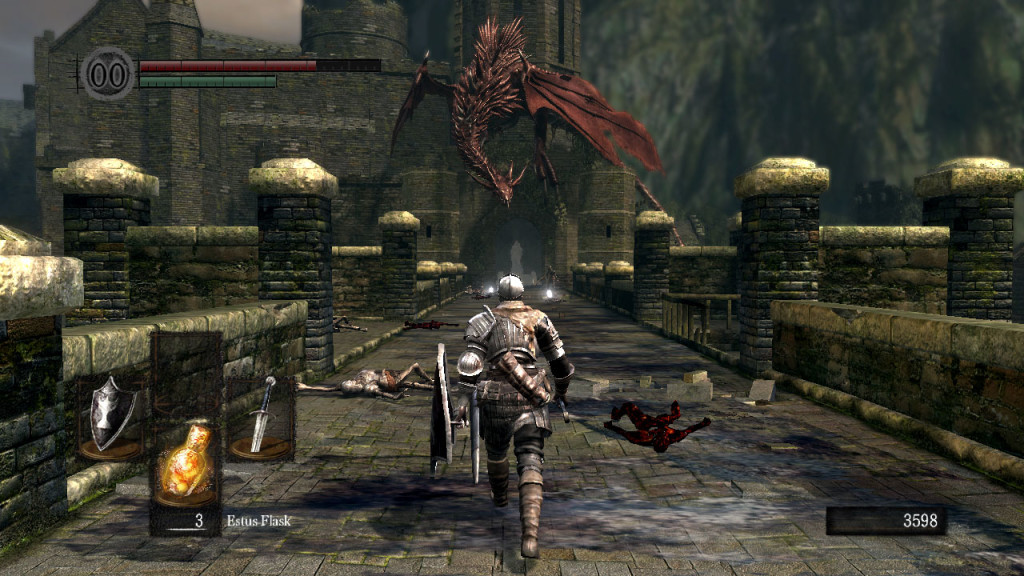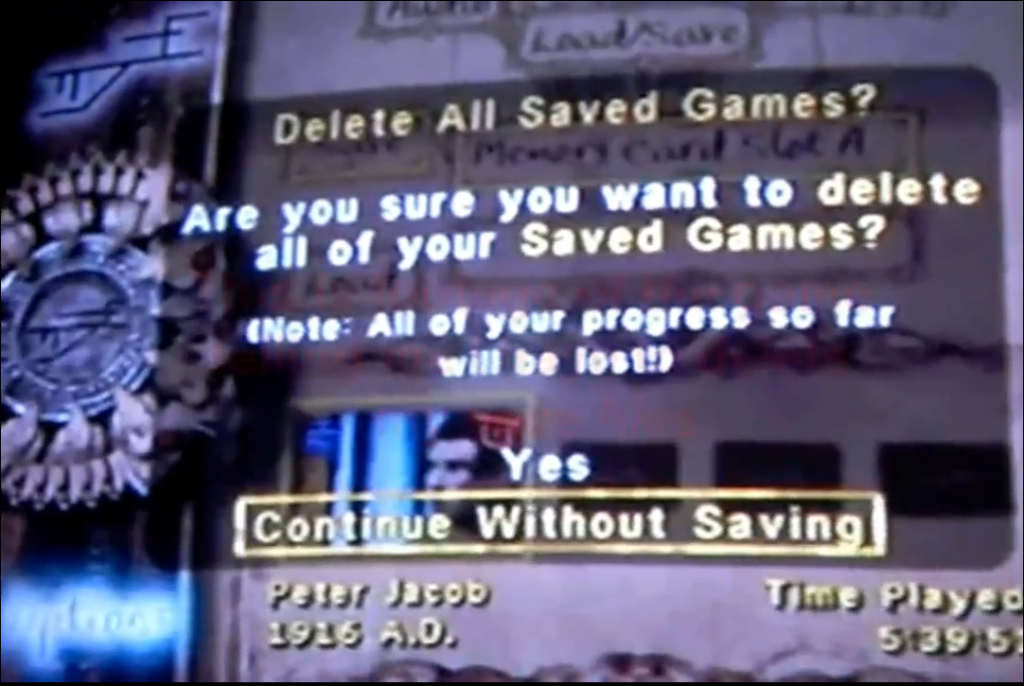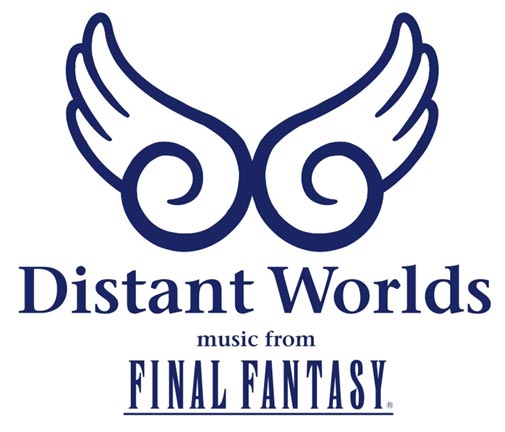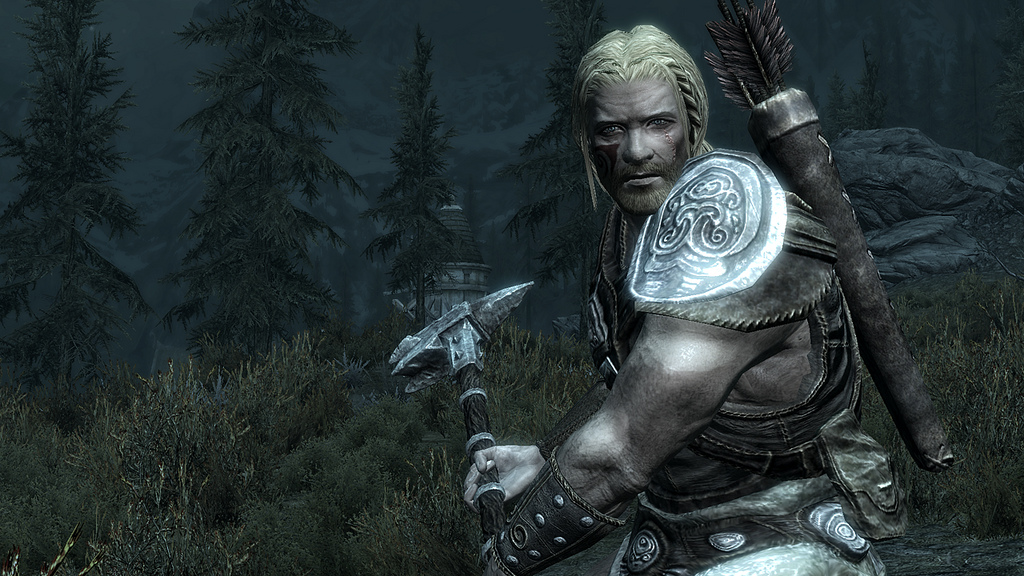Last updated on March 1, 2016
- Part 1 – The Introduction To Horror
- Part 2 – The Psychology of Horror
- Part 3 – The Biblical Approach to Horror
I did not realize the impact music and cutscenes actually provide to most video games – this works with or without story. They fit, of course, within the entirety of a game’s aesthetic appeal, but they also continue further from the events happening within the game. Recently, I’ve attended many “video game concerts” where music from games appears, rearranged to fit the confines of an orchestra (or symphonic metal band, as in the case of the Video Game Orchestra). In most cases, I’m surrounded with self-proclaimed “fans” of the games. They discuss the setlist, they gasp when songs the conductor announces the next song (I didn’t even know the Final Fantasy XIII battle theme was actually called “Blinded by Light”), they cry as the current piece hits them emotionally. If I didn’t know any better, I’d say we were in a charismatic church, but we’re at a video game concert!
How did video games reach this status? Here, we’re definitely NOT talking about Western games, with the rare exception of God of War’s exceptional soundtrack. Rather, almost every game played at any of these professional concerts (at least that I attend) focus fully and forcefully on the musical stylings of the Japanese – specifically, people related to JRPGs. Heck, Final Fantasy obtained its own international concert series that continues to play Nobuo Uematsu’s (and, by extension, Masashi Hamazau’s) music everywhere.
And that’s…rather strange, when you think about it. Video games aren’t about passively listening to music, or casually observing graphics. Video games force you to engage with them, allowing the player to accept the rules of a diverse collaboration of various systems. Through that interaction, you invest in the game, whether towards completion (in the case of most cinematic-style games) or mechanical mastery. In either sense, the aesthetic elements merely facilitate that interaction. Then, the aesthetics become your primary way of re-entering those emotional states and that world – nostalgia, in a word, and in a positive way.
Yet, on some level, the player subliminally interacts with the aesthetics. Have you noticed the continually widening gulf between the clean, unrealistic lines of Japanese polygonal work to the dirty, brown-flavored visual style of their Western counterparts? Exceptions exist to every rule, but I don’t think I would make much exaggeration to compare The Elder Scrolls V: Skyrim to Final Fantasy XIII. One intends to present a visual feast for the eyes and present environments that exist only in imagination and flights of fancy, while the other seeks to recreate that damnable “low fantasy” setting I’ve seen a hundred times before (my silent disdain of that repetitive stylistic choice isn’t obvious, is it?). Both of them engage people of vastly different cultural taste, yet (as in my case) there’s plenty of crossings over the big pond. Games resonate across boundaries.The images remain, and the music brings a reminder of those great experiences with the game and with fellow gamers.
Now, I posit the reason why the aesthetics combine with the mechanics, in our minds, come from a strange emotional resonance. Interaction does force us to engage within the whole of the presented material, whether we like it or not. An emotionally draining, dark, and depressing game will inevitably remind us as such. The mechanics may delight us in many ways, but the overall affect may leave us distraught. A lighthearted game, filled with music and colorful visuals, might make us incredibly frustrated, but it’s hard to get mad when the entire world’s smiling (it makes me want to smile just thinking about the concept of smiling!). Even the mechanics cause a schizophrenic (I realize it’s the wrong word, but the colloquial sense is what I mean here) disconnect between the player and the game’s set mood, yet we remember the game’s mood more than our own.
Dark Souls, for example, provokes that exact feeling in myself. I think it’s a delightful, tactical action-RPG which forces mechanical and statistical management to survive. Death means something because you lose resources. The game, early and often, presents to you an alien and hostile world with few friends or allies; most merely wish to get something out of you, and give something in return. Enemies, regardless of their difficulty or even what environment you enter, give the player no quarter (and often no warning!) when they will attack. Since you don’t want to die, even though YOU WILL DIE, that makes every blind corner, every plumbing of the depths, and every venture into the unknown completely and utterly overwhelming. Add the game’s mechanical tension to the aesthetic bleakness and Dark Souls will overwhelm you. Heck, I think it may contend for one of the scariest games ever made, even if it’s not meant to scare.

The same could be said of Bayonetta, a decidedly lighthearted game with a quirky sense of aesthetics, humor, and design. It’s a challenging game that demands focus for anything approaching a respectable score, but you’ll never find yourself scared by it or intimidated except from a purely mechanical standpoint. Well, that and Bayonetta’s intimidating sexuality, but that’s a different issue. The aesthetics don’t conflict with the mechanics here, and that’s just fine. Some games focus on one elements or the other (David Cage would fit into the “aesthetics” mold, not necessarily one I enjoy), but the games which mesh those together truly offer an emotional resonance.
Returning to Dark Souls, one of the reason that it scares so well derives from the Two-Factor Theory of Emotion, also known as the Schachter–Singer Theory (as named after its primary researchers). In this theory, we find that the human brain tends to search toward an explanation for the way it feels, a label for cognitive states. Helpfully explained by the quotation below (stolen from this Gamasutra article wholesale):
The theory states that in order for an emotion to be felt, two factors must be present:
- Physiological change: The person feels elevated heart rate, sweaty skin and other elements of physiological arousal.
- Cognitive label of the physiological change: Based off the context of the situation, the person assigns a label to the physiological change.
Simply put, when your body reacts physically to some stimuli and you mind assigns meaning to your physical state, you synthesize an emotional response.
Imagine the game designers, then, as an expert on the process of provoking and intentionally prodding human emotions. Like in any medium, they want to create a sort of emotional response in their subjects (the player, in our case). A designer, then, decides that emotion and tries to create an environment where a person 1. feels a psychological change and 2. assigns a label to said experience.
When we talk about a game like Dark Souls, we really refer to the mechanical difficulty in most cases. However, the aesthetic elements actually add to this; the isolation, loneliness, and darkness of the entire game world melds with the mechanical difficulties in our mind, confusing the two. A zombie warrior jumps out of the shadows from an unforeseen position, scaring the bejeezus out of you. Yet, that only happened in a video game, and you’re merely interacting with the mechanics. Thus, your brain confuses the mechanical difficulty for the aesthetic oppressiveness, and the designers succeed in their intent to craft artificial emotions.
This does tend to explain why horror games craft intentionally obtrusive design choices, or “bad” controls, or make the game incredibly difficult: these elements cause our aforementioned “artificial” emotions to arise. Your brain can’t tell the difference once you’re engaged, and that’s what produced such an enormously effective game style, survival horror, in its place. Of course, Dark Souls isn’t in that genre at all, but it certainly produces the same effect (on me, specifically).

Does that make them enjoyable and wonderful, though? Not necessarily! I imagine that there’s a predominantly small subset of people who enjoy horror-related things (and I am definitely NOT in the category of liking such things at all), but I doubt that we go into such experiences expecting the freaky little girl or the knife wielding maniac to provide us with a bountifully wonderful time! In most (if not all case), the like for horror media doesn’t even derive from the emotional content (i.e., shock and disgust) as you might imagine. We don’t like seeing bad things happen to people or other living creatures, regardless of how desensitized we sometimes feel towards violence. Sometimes, contributing factors (like, say, a comfy chair or participating with other people you know) elicit positive responses to horror films.
Still, I can’t imagine that we merely associate good feelings with them as an indirect stimulus. In that way, such experiences would demand that we call them a subtle mental drug meant for the hedonistic thinker. We manipulate our own cognitive states for the purpose of relief or relaxation, and that’s almost a little disturbing.
In games, however, we force ourselves into engagement with what happens on screen. It isn’t relief, except in the case of overcoming challenges with the tools you utilize according to the designer’s wishes. The horror elements, in that sense, merely trick the player into thinking that they feel terror, while they actually feel frustrated at the level of difficulty. Frankly, this is absolutely brilliant. It explains why people continue to play horror games (and indie developers continue to make them), and why YouTube shows myriad ultra-popular channels with video exploring said games.
So, a horror game uses aesthetics to enhance its mechanics. However, should we engage in such experiences at all? Now that I explain it in a direct, cognitive way, does that make the emotional reaction any less relevant?


